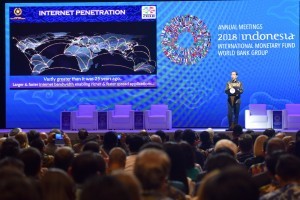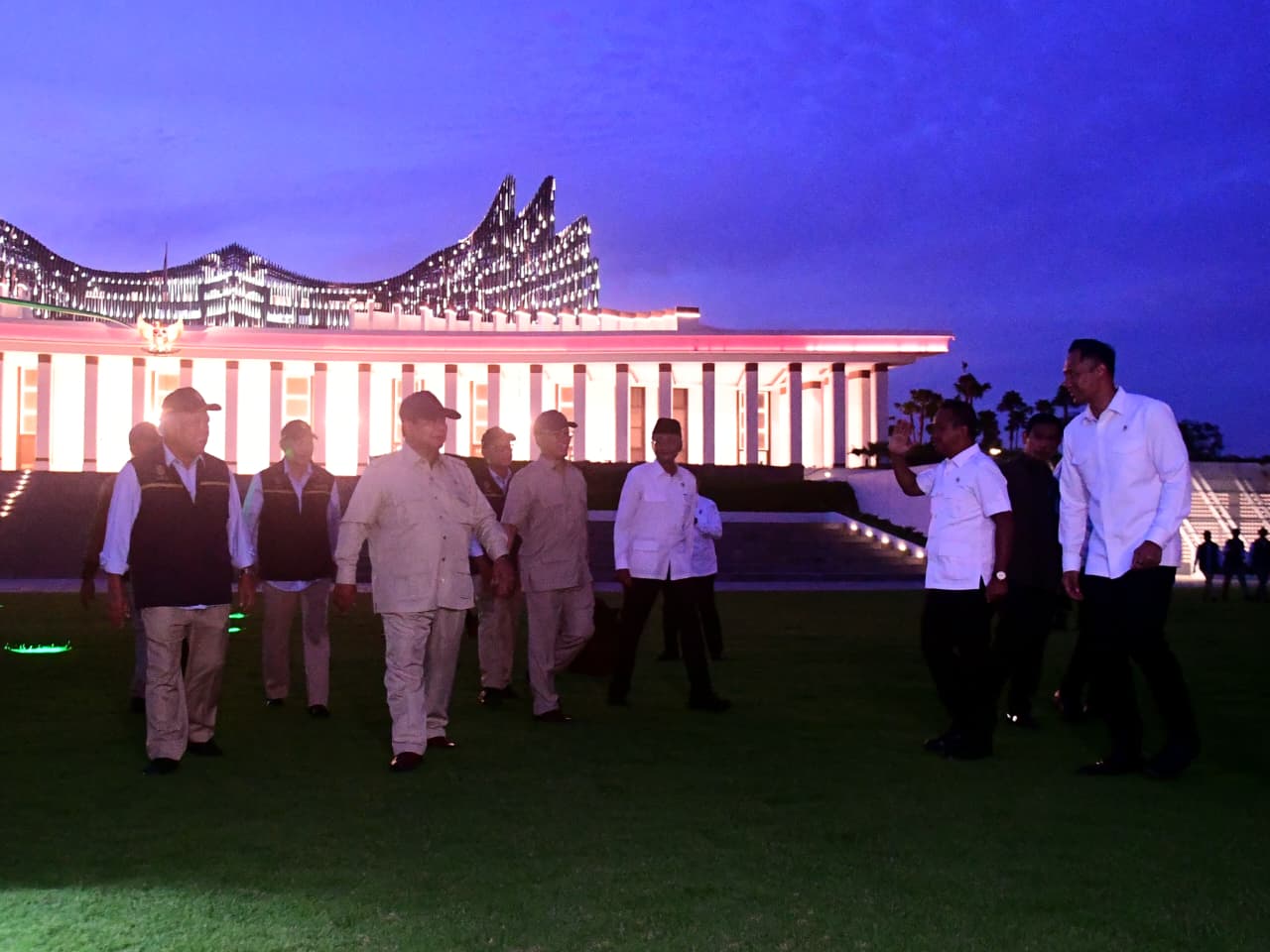Internet Regulations Should Accommodate Consumer Interest: President Jokowi

President Jokowi delivers his remarks in Bali Fintech Agenda Seminar, at Bali International Convention Center (BICC), Nusa Dua, Bali, Thursday (11/10). Photo by: Jay/ Public Relations Division of Cabinet Secretariat.
Internet regulations shall be written carefully and shall pay attention to the interests of consumers, according to President Joko Jokowi Widodo.
According to the President, the measures are necessary because internet penetration rate has been significantly increasing during the past 25 years, bandwidth capacity has also been rapidly increasing, and many things are easier to be viral.
“It means that regulations that are too restrictive at the national level will force consumers into an unregulated internet usage and push the consumers further away from regulation,” President Jokowi said in his remarks in Bali Fintech Agenda Seminar, at Bali International Convention Center (BICC), Nusa Dua, Bali, Thursday (11/10).
The President added that along with rapid development of fintech and digital economy, there is also the principle of regulation that made the internet developed swiftly 20 years ago. President Jokowi cited the internet regulation, initiated by then President of the United States Bill Clinton, which prevented excessive government intervention.
President Jokowi further said that the regulation has given confidence to internet innovators without having to fear that the experiment fails. The result, according to the President, is that the innovation not only creates prosperity but also creates the modern foundation of the internet today.
“We should not stipulate the regulation too quickly. We should let the innovation grow instead. We have to respond to the wave of innovation with simple rules and provide a safe harbor, “President Jokowi said.
President Jokowi went on to say that if the regulation is too strict and creates a closed system, it will cause economic activity to stay away from cyber economy. “We must encourage the creation of global standards and openness,” the President said.
In the meantime, Managing Director of the IMF said that Bali Fintech Agenda will create policies that can be used as guidelines, will involve all financial institutions in the world and will not disrupt the stability of the world’s financial system.
The Bali Fintech Agenda, launched by the IMF and the World Bank, contains 12 elements, among others 1) supporting the development of fintech; 2) utilizing new technology to improve financial services; 3) encouraging competition and commitment to an open, free and tested market; 4) developing financial inclusion for everyone and developing financial markets; 5) monitoring changes in financial system; 6) adjusting the policy framework and supervision practices to the development of technology and financial system stability; 7) protecting the integrity of financial system; 8) adjusting legal framework to suit the latest developments; 9) ensuring domestic monetary and financial system stability; 10) developing strong financial and data infrastructure systems to obtain sustainable benefits from fintech; 11) encouraging international information cooperation; and 12) increasing joint supervision by international monetary and financial system.
The results from Bali Fintech are expected to be used as a reference for fintech development in Indonesia as well as in the world.
Also present during the event were Coordinating Minister for the Economy Darmin Nasution, Minister of Finance Sri Mulyani Indrawati, Cabinet Secretary Pramono Anung, IMF Managing Director Christine Lagarde, and World Bank President Jim Yong Kim. (Tim Liputan IMF-WB/ES) (RI/EP/Naster)








